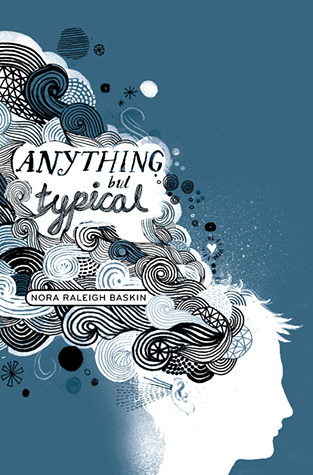There is one thing I've learned from doing the banned/challenged reading challenge this year: You can't write a book that will please everyone. There is going to be something about your book, no matter how minuscule or indirect, that will offend someone. Picture books for younger readers are easily targeted for challenges due to their brief text and illustrations as you will see in the following reviews below.
 Description:
Description: A story of a strange, shy, small boy who is isolated by his differences from other children in a Japanese village school.
Review: Crow Boy is a very simple story and it would work as a great way to introduce the topic of bullying through a multicultural lens. This story centers around a boy that does not fit with the social and cultural norms of his classmates throughout his school career. He continually is bullied and made fun of by his classmates. It is not until the sixth grade when a teacher takes interest in him and creates opportunities for him to show his talents and knowledge. For example, the boy can imitate lots of crows. He is admired for his crow calls and dubbed "Crow Boy". Once his classmates learn about his hard struggles and what the boy does just to go to school, they realize how quick they were to jump to conclusions and by the end of the story, he is incorporated to the group. The story is told with sparse illustrations and what seems to be colored pencil illustrations that allow for shading, multiple color use, and abstraction within each illustration. Each classmate's face along with the main character's face are somewhat blurred and allow for a greater audience for this story, since it is not specifically identified with Japan and Japanese culture. I'm not a fan of the book's illustrations at all and I think they are kind of off putting, however, the powerful story makes up for it.
Rating: 4 stars
Reasons why it was banned/challenged: Challenged by a school board member in the Queens, N.Y. school libraries (1994) because it "denigrates white American culture, 'promotes racial separation, and discourages assimilation."' The rest of the school board voted to retain the book.
Source: ALA, Banned Books 1994-1995
Words of Caution: None. The book challenge for this book does not make sense to me at all. I'm almost positive that the challenger has not even bothered opening this book to realize that a) the book's setting is
a village in Japan, b) the story is about bullying, and c) the lesson in this book is about embracing differences, not labeling people, and why bullying is bad. There is zero discussion about race and race relations. Furthermore, I think
Crow Boy successfully tries to be multicultural in showing that bullying, unfortunately, takes place anywhere. The last time I checked, American culture is not just "white" but a melting pot of lots of other races, ethniticies, etc, and that all men are created equal.
If you like this book try: Umbrella by Taro Yashima,
Be Good to Eddie Lee by Virginia Fleming
 Description:
Description: Telling his faithful dog to make sure nobody touches his clothes but him, a cowboy jumps into a New Mexico river for a bath, not realizing just how much the scrubbing will change his scent.
Review: After finding 32 fleas in his hair and tumbleweeds in his chaps, a freckle-faced cowboy decides that it's time for his annual bath. He mounts his horse, calls for his old dog, and heads for El Rio. There he takes off his clothes and commands his dog to guard his duds and to not anyone take them except him. After frolicking merrily with a bar of soap through G rated illustrations that cover the lower parts of his body, he emerges thoroughly scrubbed and thinks he should also wash his clothes too, but there is a slight problem. The dog does not detect his owner's familiar "wild boar-like smell" and stubbornly refuses to relinquish the garments. A hysterical brawl ensues as owner and pet fight for the clothes that ultimately leaves the man as dirty as when he started, ultimately restoring his usual aroma. Unfortunately, the clothes do not survive the tussle, and the cowboy heads for home in his birthday suit. Told in descriptive language that rolls off the tongue, this story makes the most of a humorous situation. Filled with the dusty reds and sundown bronzes of the New Mexico setting, the paintings have a gritty, sinewy look that matches the earthy tone of the tale. The illustrations does have a Norman Rockwell appeal to them. The illustrations are clever, but my favorite picture is of the hangdog expression on the pooch's face when he realizes his mistake is priceless. Dirty Cowboy is a fun tall tale story that younger readers will enjoy and might even get them to take baths more often.
Rating: 4 stars
Reasons why it was banned/challenged: In April 2012, the Annville-Cleona School Board in Lebanon, PA, voted 8-0 to remove the book from its elementary schools after a student's parents objected to some of the book's illustrations. There is no objection to the story itself but rather the illustrations may lead children to think "that looking at nudity is OK, and therefore pornography is OK.'"
Source: LDN News
Words of Caution: As I mentioned, the illustrations are G rated and not all that different from the old cartoons where a person would wear a barrel if their clothes were destroyed. Now I'm pretty sure that all kids know that in order to take a bath or a shower, you have to disrobe. I see to be missing the huge "logical" jump from this idea to pornography. Can you help me out? Recommended it for Grades K-Grade 2nd reading level.
If you like this book try: Down the Drain by Robert Munsch, Tub Toys by Terry Miller Shannon

Description: Through a series of questions to which the reader must answer yes or no, the personality and occupation of a lady called Daisy O'Grady are revealed.
Review: Guess What? is an off beat Halloween picture book in the form of a question and answer style. The structure is simple, introduced on the first page with a flat statement: ``Far away from here lives a crazy lady called Daisy O'Grady.'' This is followed by a series of questions that are answered with a resounding ``Yes!'' when the page is turned. Each exchange builds a description of a woman who, it is increasingly obvious, is a witch. The last lines, however, are reassure us that Ms. O'Grady is isn't frightening. The text is paired with illustrations that add to the eerie atmosphere with a photographic surrealism. Framed sharply to face the text, which is in large print, the pictures become increasingly bizarre in their use of detail, commenting on the text as much as extending it. The picture and text are darkly humorous and I think would go over the little one's heads. I know I found some of the pictures to be a bit grotesque for my taste and could have easily scared me as a child. As a result, it's an okay book with a cool format, but definitely not my first choice as a Halloween book.
Rating: 3.5 stars
Reasons why it was banned/challenged: References to witchcraft.
Source: MVCC Libraries
Words of Caution: The book doesn't teach you how to become a witch. It just features a witch, a figure that is quite common in a lot picture books about Halloween. Due to some nightmarish images, I would feel better recommending this title for Grades 2-4
If you like this book try: Are You Awake? by Sophie Blackall,
Boy Wonders by Calef Brown
























